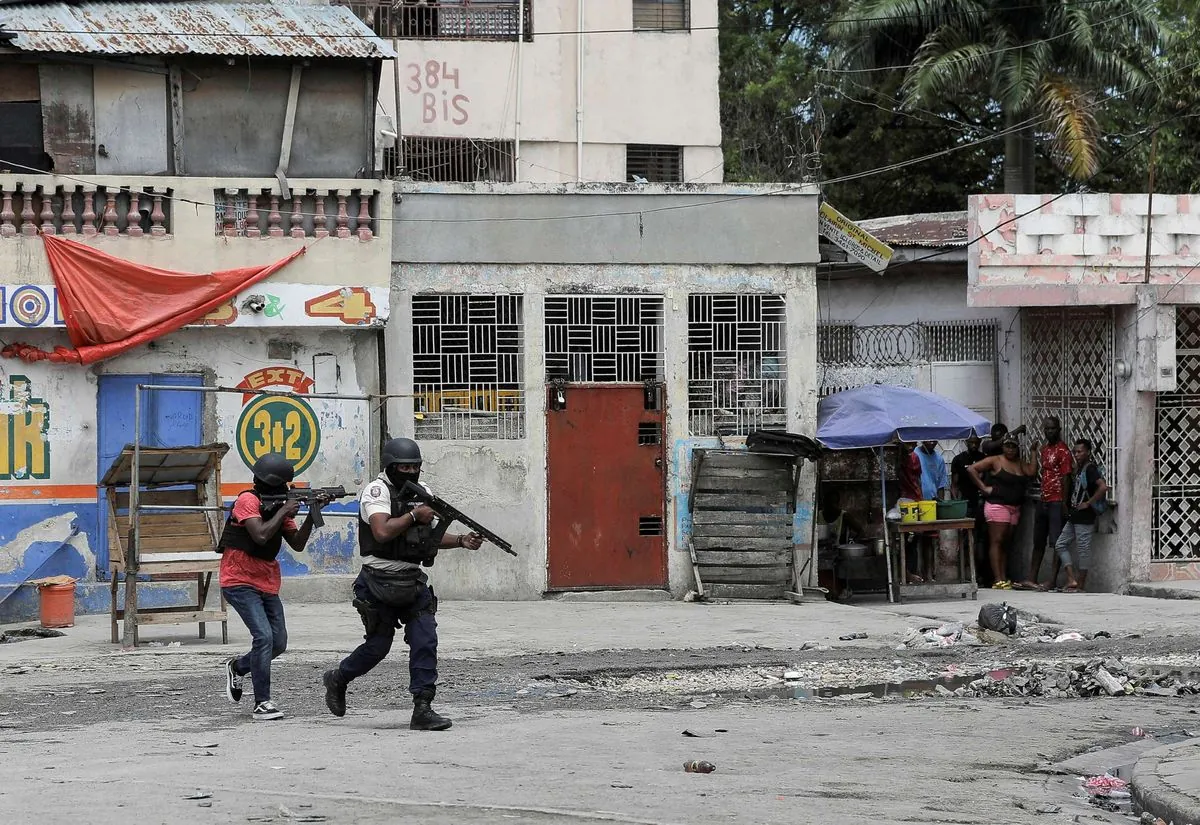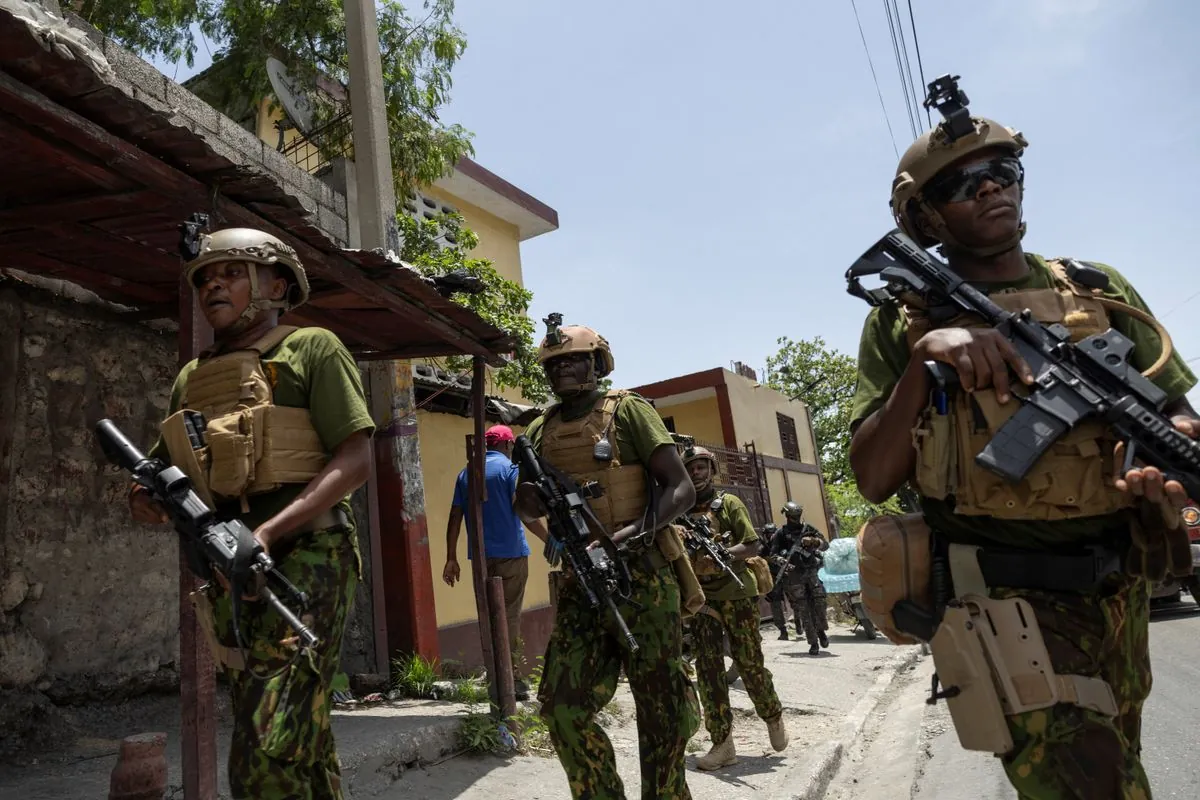U.S. Considers U.N. Peacekeeping for Haiti Amid Funding Challenges
U.S. explores U.N. peacekeeping option for Haiti as current mission faces funding issues. Secretary Blinken to visit amid ongoing political instability and gang violence in the Caribbean nation.

The United States is exploring the possibility of a United Nations peacekeeping operation in Haiti as a potential solution to address funding and staffing challenges faced by the current Kenya-led mission. This development comes as the Caribbean nation continues to grapple with persistent gang violence and political instability.
Brian A. Nichols, U.S. Assistant Secretary for Western Hemisphere Affairs, disclosed this information on September 4, 2024. He emphasized that while a peacekeeping operation is under consideration, the U.S. is examining multiple approaches to support Haiti.
The current U.N.-backed mission in Haiti relies on voluntary contributions, with the U.S. and Canada providing the majority of the funding. Approximately 400 Kenyan police officers are presently deployed in the country, with plans to increase the total personnel to 2,500, including forces from several other nations. However, the mission faces significant financial constraints, with only $85 million pledged out of the required $600 million annual budget.

Haiti, the first independent nation in Latin America and the Caribbean, has a long history of political instability and natural disasters. The country's last presidential election took place in November 2016, nearly 8 years ago. The assassination of President Jovenel Moïse in July 2021 further exacerbated the political vacuum, leading to a surge in gang violence.
In February 2024, gangs launched coordinated attacks on key government infrastructure, forcing the closure of the main international airport for almost three months. The situation prompted the resignation of Prime Minister Ariel Henry in April 2024, leading to the formation of a transitional presidential council.
Despite these challenges, Nichols noted some progress, citing a recent joint operation between Haitian police, military, and Kenyan forces targeting gang activities. However, gangs still control 80% of Port-au-Prince, the capital city, which was devastated by a major earthquake in 2010.
The ongoing violence has had a severe impact on the population, with over 3,200 people killed between January and May 2024, and more than half a million displaced in recent years. Haiti, the poorest country in the Western Hemisphere, continues to face numerous challenges, including a low literacy rate of around 61% and significant environmental issues due to high deforestation rates.
U.S. Secretary of State Antony Blinken is scheduled to visit Haiti on September 6, 2024, to meet with Prime Minister Garry Conille and the transitional presidential council. The visit aims to push for the appointment of a provisional electoral council to facilitate long-awaited elections.
However, the transitional council is currently embroiled in a corruption scandal, with three of its nine members accused of demanding substantial sums from the director of the government-owned National Bank of Credit. Nichols emphasized the need for transparency and good governance in Haiti.
Following his visit to Haiti, Blinken will meet with Dominican President Luis Abinader. The Dominican Republic, which shares a 376 km border with Haiti on the island of Hispaniola, has implemented strict measures against Haitian immigration, including barring Haitians from flying into the country and constructing a border fence.
As the international community continues to grapple with the complex situation in Haiti, the potential U.N. peacekeeping operation remains a topic of discussion. The decision ultimately rests with the U.N. Security Council, but experts suggest that such a mission may face resistance from both the council and the Haitian population, given past controversies surrounding U.N. troop presence in the country.


































